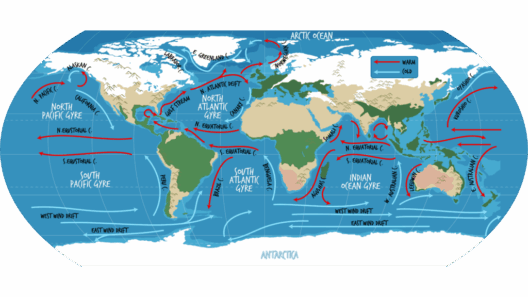Climate change is a phenomenon that has engrossed scientists, policymakers, and citizens alike for several decades. It is often juxtaposed with apocalyptic imagery, evoking fears of a dystopian future. However, what does the scientific consensus actually say regarding the impacts of climate change? Will it herald the end of the world as we know it? This inquiry demands a thorough examination of the multifaceted dimensions of climate change, its effects on ecosystems, human civilization, and the planet at large.
To begin, understanding climate change necessitates a grasp of its fundamental causes. Primarily, anthropogenic activities—such as fossil fuel combustion, deforestation, and industrial processes—exacerbate the greenhouse effect, leading to increased concentrations of carbon dioxide and other greenhouse gases. This process culminates in altered global temperatures, precipitation patterns, and sea levels. It is crucial to note that climate change is not merely a future risk; its ramifications are being felt today across various geographical locales.
The implications of climate change extend beyond environmental degradation. They permeate societal structures, inciting food insecurity, displacement, and health crises. As global temperatures rise, the frequency and intensity of extreme weather events—hurricanes, droughts, and flooding—increase. These phenomena not only impact natural ecosystems but also disrupt food systems, engendering scarcity and potential conflict. Research indicates that regions most vulnerable to the effects of climate change tend to be those already grappling with socio-economic hardships, exacerbating existing inequalities.
Moreover, the concept of tipping points looms large in discussions surrounding climate change. Tipping points are critical thresholds where minor changes can lead to significant and irreversible impacts. For instance, the melting of arctic ice diminishes the Earth’s albedo effect, resulting in increased absorption of solar radiation and further warming. The permafrost thawing releases methane—a potent greenhouse gas—into the atmosphere, creating a feedback loop that accelerates climate change. These tipping points underscore the potential for cascading effects, where one change triggers a series of unpredictable transformations within the climate system.
As we venture deeper into the future, the likelihood of societal adaptation to climate change becomes increasingly pivotal. Resilience is now a key focus for researchers and policymakers. How can communities and nations adapt to shifting climatic conditions? Strategies range from the implementation of sustainable agricultural practices to the development of infrastructure resilient to flooding and heatwaves. Urban planning—considering green spaces, energy efficiency, and public transport—may mitigate the detrimental impacts of climate change. Furthermore, international cooperation is indispensable. Climate change knows no borders; thus, collaborative efforts among nations are essential for curbing emissions and sharing resources.
While projections of catastrophic repercussions dominate headlines, it is crucial to maintain a balanced perspective that acknowledges both challenges and opportunities. Technological advancements present novel avenues for combating climate change. Innovations in renewable energy—such as wind, solar, and hydroelectric power—are gaining traction globally. Energy transitions can lead to decreased reliance on fossil fuels and generate sustainable economic growth. This shift is not merely an environmental necessity; it represents a pivotal opportunity for job creation and technological leadership in the burgeoning green economy.
It is also vital to foster public engagement and awareness. Informing communities about climate change enhances their ability to participate in solutions. Educational initiatives can cultivate an understanding of sustainability and conservation practices. Behavioral changes at the individual level—such as reducing waste, advocating for policy change, and supporting sustainable products—can collectively contribute to a more resilient future.
While the question remains—will climate change end the world?—it is essential to refocus the narrative. Instead of depicting an inevitable doomsday, the discourse should emphasize the resolute efforts being made globally to combat and adapt to climate change. Scientists stress that immediate action can mitigate the worst effects, ensuring that a habitable world persists for future generations. The scientific community promotes a qualitative urgency; the longer we delay meaningful intervention, the more severe the consequences. Mere survival is not the ultimate goal; striving for a more equitable and sustainable world is an aspiration worth pursuing.
In conclusion, mainstream scientific perspectives do not unequivocally endorse the notion that climate change will spell the end of the world. Instead, they reflect a complex interplay of risk, adaptation, and innovation. Understanding climate change as a societal challenge—rather than a terminal catastrophe—encourages proactive measures and collective action. We possess the capability to forge pathways toward sustainability and resilience; yet, this requires commitment on an individual, communal, and global scale. As stewards of the Earth, we are charged with both the responsibility to mitigate harm and the opportunity to create a more sustainable future.




